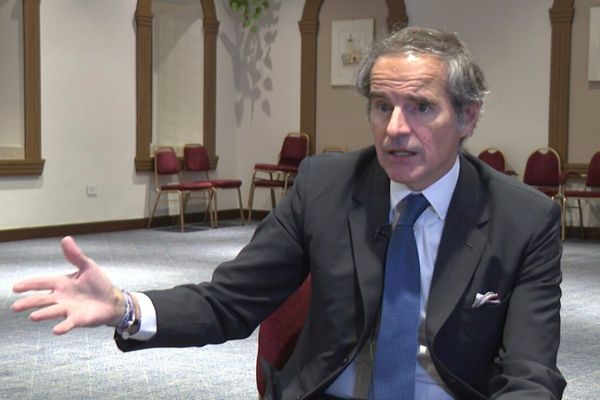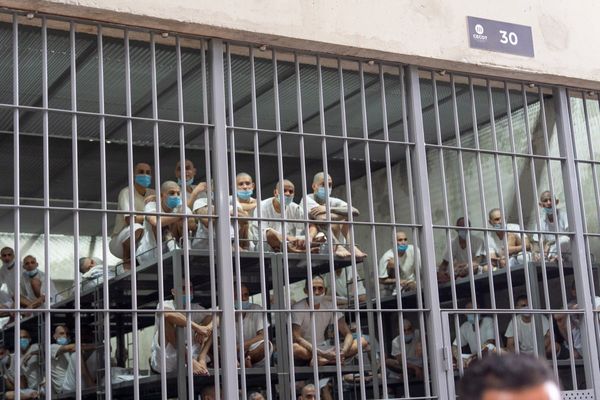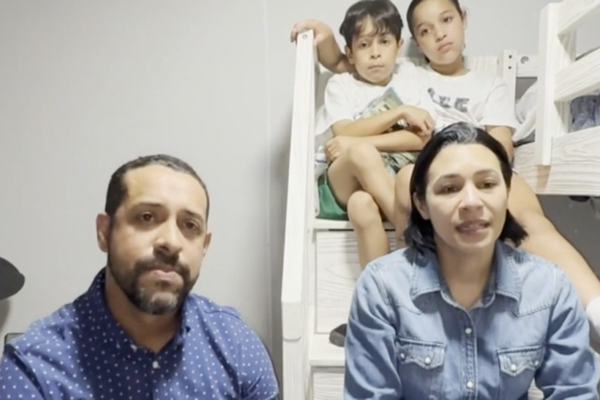/https://static.texastribune.org/media/files/47f413ca33b98fdcf6d39f650e6a8a86/1108%20County%20EMS%20ST%20TT%2001.jpg)
Legislation that started as a priority bill to place substantial limits on the personal injury lawsuit industry — those representing accident victims and their families — died this weekend after lawmakers failed to agree on a final version ahead of the deadline.
The bill’s end came after it had already been pared down to an unrecognizable version that only required disclosure of referrals between lawyers and health care providers. It also would have expanded the options for what evidence could be admitted to estimate damages.
The failure to pass the bill marked a significant defeat for Texans for Lawsuit Reform, a major business-friendly lobbying group in the Texas Legislature.
Senate Bill 30, by Sen. Charles Schwertner, sought to limit the amount of damages accident victims could claim by creating specific guidelines around what evidence juries were allowed to consider, and tied the amount of money juries could award to certain thresholds, such as a 150% of what Medicare paid for that service, among others.
The goal of the bill, according to the author, was to curb “nuclear verdicts” — ones that award victims $10 million or more.
Company owners testified at an April committee hearing that such lawsuits drive up the cost of doing business in Texas.
Lee Parsley, president of Texans for Lawsuit Reform, said the group was disappointed the Legislature did not pass a bill they see as “necessary to stop this well-documented, barely hidden abuse of our legal system.”
“Today, a kind of fraud is occurring in courtrooms across Texas, as personal injury attorneys and collaborative doctors manufacture medical bills and present them to jurors as if they are legitimate,” he said in a statement. “This unethical activity is increasing insurance premiums for every business operating in our state. Ultimately, the increased cost of doing business is paid by every Texan.
The bill passed the Senate 20-11 in mid-April. The House also passed the bill 87-51 in late May, but with significant changes that the Senate refused to agree on.
The House version also added an amendment by Reps. Mitch Little, a Republican from Lewisville, and Joe Moody, a Democrat from El Paso that gave juries discretion to decide what evidence was relevant — a change that House sponsor Greg Bonnen argued defeated the purpose of the bill.
For the Texas Trial Lawyers Association, which opposed the bill, that was a win: “This moment serves as an important reminder that protecting our civil justice system requires ongoing care and attention,” Jack Walker, president of the group, said.
The bill failed despite being one of Lt. Gov. Dan Patrick’s priorities, alongside Senate Bill 39, which was specific to curbing payouts from lawsuits against commercial vehicle owners, including trucking companies.
Rep. Harold Dutton, a Democrat from Houston and a member of the conference committee appointed to negotiate the bill, said he voted against it because he thought it was a bad bill — and doesn’t think he’s alone in that opinion.
“Senate Bill 39 and Senate Bill 30 were absolutely terrible, and I can tell you this, there are some Republicans who didn't like them either,” he said, adding that when he raised a technical/procedural objection to the bill, “they said, Harold, please kill this bill, because we don't want to vote on it.”
SB 30 made it to the final legislative stages despite strong opposition from some conservative activists who previously supported the group’s efforts on restricting medical malpractice lawsuits.
But the group’s influence has waned, especially after backing a rival candidate to Attorney General Ken Paxton. One of Paxton’s lawyers in his impeachment trial was Little, who was appointed to the conference committee.
Cody Dishon, a trial lawyer who says the bill spurred him to begin paying attention to the Legislature, was glad to see the bill outcome: “People from all walks of life have voiced strong opposition to the controversial SB 30, including a former trial judge with 16 years on the bench, medical doctors and healthcare professionals, survivors of sexual assault, conservatives and democrats, defense attorneys, and families who have lost loved ones due to corporate negligence.”
First round of TribFest speakers announced! Pulitzer Prize-winning columnist Maureen Dowd; U.S. Rep. Tony Gonzales, R-San Antonio; Fort Worth Mayor Mattie Parker; U.S. Sen. Adam Schiff, D-California; and U.S. Rep. Jasmine Crockett, D-Dallas are taking the stage Nov. 13–15 in Austin. Get your tickets today!







